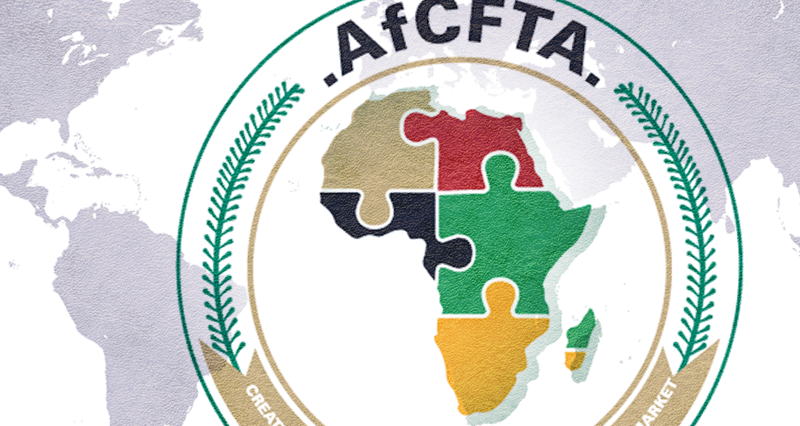Regional integration can often appear as a complex concept, seemingly confined to the realm of the elite. Nevertheless, for any regional integration initiative to truly succeed, it must be embraced and comprehended by the common people. Governments and civil societies have a pivotal role in simplifying these concepts and raising awareness to ensure success.
The African Continental Free Trade Agreement (AfCFTA) is a pertinent example. Over the past year, while pursuing my PhD. at the Faculty of Law at Bayero University Kano, I embarked on a mission to make the AfCFTA more accessible to Northern Nigeria, with a specific focus on this vital trade agreement. In this two-part article, I aim to delve into the potential of the AfCFTA and its impact on the economy of Northern Nigeria.
The AfCFTA represents the promise of a unified Africa with a single market, a dream that has been alive since the 1960s. Various treaties, including the Lagos Plan of Action and the Abuja Treaty, were signed over the years to make this dream a reality. These agreements aimed to create a seamless platform for businesses to trade across African borders, with minimal restrictions. However, despite these ambitious treaties, many of which were concluded in 1980 and 1991, they remained largely unimplemented due to various challenges, including a lack of political will.
In 2019, after a hiatus of more than three decades, a new trade agreement breathed life into the Pan-African dream—the AfCFTA. This agreement was met with enthusiasm and optimism across the continent.
Before we explore the reasons behind this excitement, it is essential to understand the structure of the AfCFTA. The AfCFTA is the primary treaty, accompanied by six other protocols (sub-agreements) to be rolled out in three distinct phases.
The first phase addresses trade in goods, trade in services, rules and procedures for dispute settlement, as well as customs and trade facilitation. The second phase covers investment, competition, and intellectual property, while the third phase pertains to digital trade. It’s important to note that all African countries, except for Eritrea, have signed the AfCFTA.
At its core, the AfCFTA aims to create a single market across Africa, making it easier for countries to trade with one another. The agreement seeks to eliminate barriers to trade in goods, liberalize trade in services, and harmonize policies in various areas, including investment, intellectual property rights, competition, and customs.
This article primarily explores the AfCFTA’s mission to enhance intra-African trade by addressing the factors that hinder trade between African nations, technically known as trade barriers. These barriers come in two main categories: tariff barriers to trade, which are customs duties levied on goods at ports, and non-tariff barriers to trade (NTBs), which encompass various unjustifiable obstacles to trade, distinct from tariffs.
NTBs include government intervention in trade, such as aids, subsidies, and tax benefits, as well as customs and administrative entry procedures like import licensing, pre-shipment inspections, samples, and customs formalities. Technical barriers to trade, such as technical regulations and standards involving packaging, labelling, weighing, and marking requirements, are also significant components, along with sanitary and phytosanitary measures, like chemical residue limits and disease control.
Specific limitations like embargoes, quantitative restrictions, and tariff quotas also fall under NTBs. While these measures serve to protect economies from unfair trade practices, they can be detrimental when used as protectionist and import-restricting tools.
It is essential to understand that the AfCFTA’s objective isn’t merely to eliminate NTBs but also to promote cooperation and harmonization based on international best practices. Member states still retain the power to regulate their economies through trade remedies, including anti-dumping, countervailing, and safeguarding measures. They also have the flexibility to enact measures to protect public morals, public order, human, animal, and plant lives, patents, trademarks, copyrights, historical and archaeological value, conservation of exhaustible natural resources, and restrictions on the export of domestic materials needed by domestic industries, among others.
Each country is expected to develop a plan for the elimination of NTBs known as the ‘Time-Bound Elimination Matrix.’ Additionally, each country should establish a national monitoring committee comprising stakeholders from the private and public sectors. Furthermore, there should be national focal points, and institutional structures at the national level, overseeing the elimination of NTBs. A coordination unit for non-tariff barriers should coordinate the elimination process across national, sub-regional, and regional institutions involved.
However, the AfCFTA acknowledges that removing trade barriers alone is insufficient. The agreement also aims to reform customs processes to facilitate the entry of commercial goods into member states. State parties must cooperate in customs administration, especially concerning common measures on which customs laws and policies will be based.
The above provisions represent a promising avenue for empowering Northern Nigeria and the country as a whole. By eliminating trade barriers and fostering cooperation, it offers opportunities for economic growth and regional development. It can pave the way for a more prosperous and integrated Northern Nigeria, where the benefits of trade are accessible to all, not just the elite. We will delve further into this topic next week.
Nilfa Abdullahi Gambo works at the National Industrial Court. She can be reached at [email protected]

 Join Daily Trust WhatsApp Community For Quick Access To News and Happenings Around You.
Join Daily Trust WhatsApp Community For Quick Access To News and Happenings Around You.


